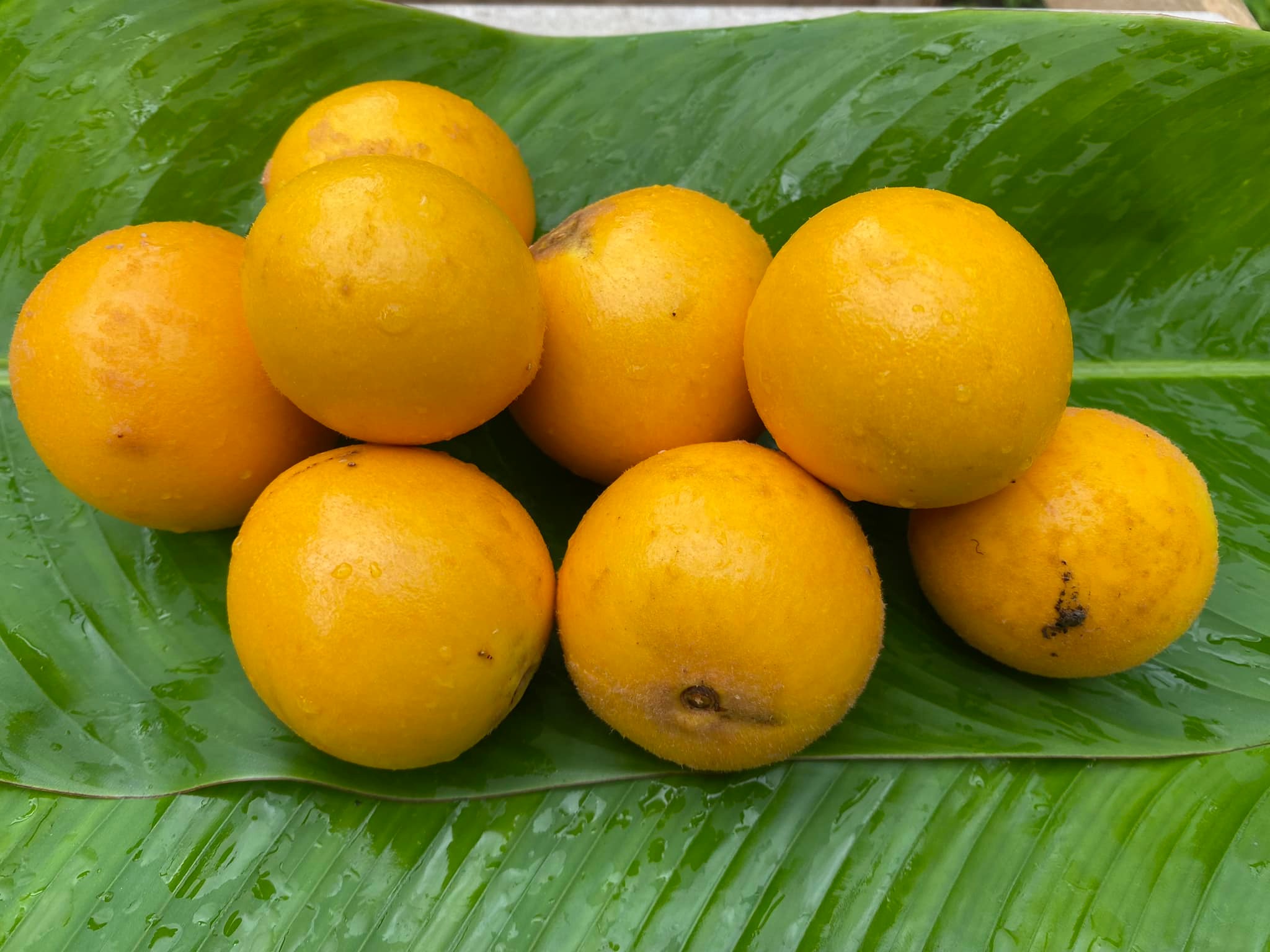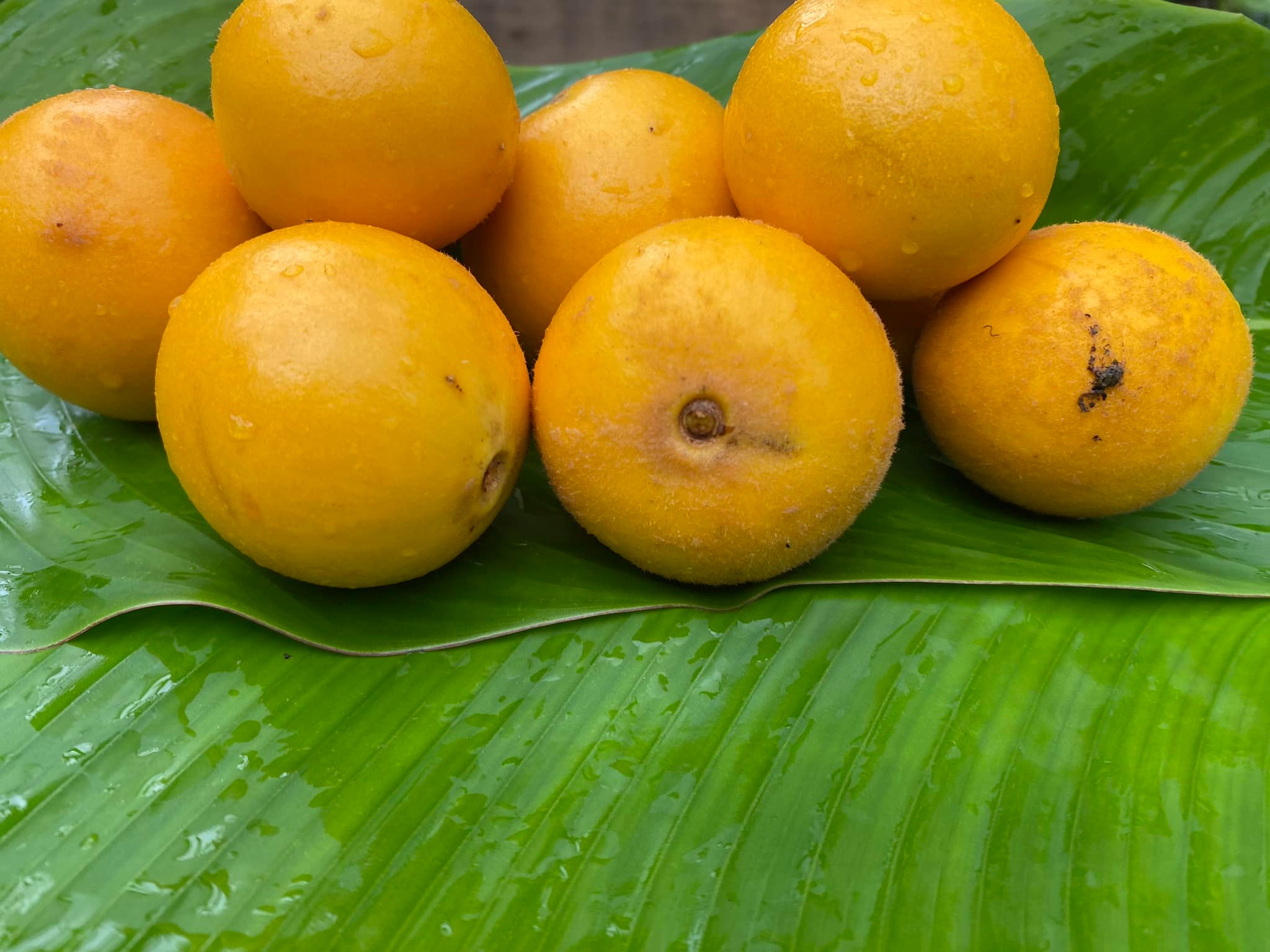Abiurana (Pouteria bullata) - 1 fresh seed / 1 frischer Samen
Abiurana (Pouteria bullata)
Family / Familie: Sapotaceae
origin from / Herkunft: South America / Südamerika
Climate / Klima: warm (10-30C / 50-86F) / warm (10-30C / 50-86F)
Use / Verwendung: edible fruits, juice, jam, ice cream, etc. / essbare Früchte, Säfte, Marmelade, Eis usw.
you buy / sie kaufen: 1 fresh seed / 1 frischer Samen
Delivery worldwide
Pre-order - delivery of these fresh seeds will be in the second week of December.
Pouteria bullata, also known as Abiurana, is a tree belonging to the Sapotaceae family and is native to Brazil.
The fruits resemble those of the Abiu, but are rounder and slightly hairy.
The flesh is white, creamy, and very sweet.
Pouteria bullata is native to the southern Atlantic forests (particularly in the states of Rio de Janeiro, São Paulo, and Paraná).
The fruits are mainly eaten raw.
The species is drought-resistant and can tolerate light frost down to -4 °C for short periods, unlike the more frost-sensitive Abiu.
The plant grows slowly in the first few months and prefers shade during its initial growth phase.
Later, the tree prefers a sunny to partially shaded location and thrives in a relatively warm, humid climate.
The plant requires well-drained, fertile soil.
Waterlogging should be avoided at all costs to prevent root rot.
During the growth and fruiting phases, regular watering is necessary to maintain consistent moisture.
Please overwinter this plant at a minimum temperature of 10 degrees Celsius.
Vorbestellung - die Lieferung dieser frischen Samen erfolgt in der zweiten Dezemberwoche.
Die Pouteria bullata, lauch bekannt als Abiurana, ist ein Baum aus der Familie der Sapotaceae, der in Brasilien beheimatet ist.
Die Früchte ähneln denen der Abiu - sind aber runder und leicht behaart.
Das Fruchtfleisch ist weiß, cremig und sehr süß.
Die Pouteria bullata ist in den südlichen Atlantikwäldern (insbesondere in den Bundesstaaten Rio de Janeiro, São Paulo und Paraná) beheimatet.
Die Früchte werden hauptsächlich roh gegessen.
Die Art ist trockenheitsresistent und verträgt kurzfristig leichten Frost bis zu -4 °C, im Gegensatz zur frostempfindlicheren Abiu.
Die Pflanze wächst in den ersten Monaten langsam und bevorzugt in der Anfangsphase Schatten.
Später bevorzugt der Baum einen sonnigen bis halbschattigen Standort und gedeiht in einem relativ warmen, feuchten Klima.
Die Pflanze benötigt gut durchlässigen, fruchtbaren Boden.
Staunässe sollte unbedingt vermieden werden, um Wurzelfäule zu verhindern.
Während der Wachstums- und Fruchtphasen ist eine regelmäßige Bewässerung erforderlich, um eine konstante Feuchtigkeit zu gewährleisten.
Bitte diese Pflanze bei mindestens 10 Grad überwintern.



